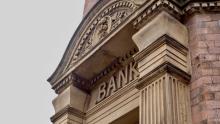Impact investing: ‘It’s imperative that nature thrives’

As greenwashing refuses to fully go away, the need to implement impactful transformation through trustworthy and transparent reporting is more important than ever. As a result, Lucy Hambro and Cédric Köhler, co-founders of independent impact engagement and measurement platform The Ark, know they have a fight on their hands.
They’re part of an interdisciplinary team combining knowledge from conservation, finance and technology who collaborate with key stakeholders wanting to create positive change for our planet.
The Ark’s data-driven biodiversity impact platform connects donors and investors to credible wildlife projects in a concerted effort to stop biodiversity collapse. And, with second-generation family business member Cédric – who has led dozens of tech startup investments and exits throughout his career – and Lucy – who has worked in sustainable development for more than ten years – at the helm, the Zurich-based company is doing the right thing the right way.
Here, Lucy and Cédric talk about measuring impact performance and increasing portfolio allocation to effect lasting and sustainable change…

What are the aims and origins of The Ark?
Cédric Kohler: When we looked at the shocking collapse of biodiversity over the past 40 years, that was definitely the trigger. We began to ask how can digital technology help to solve the problem of the next mass extinction event we’re all headed towards?
So, we started a platform that would connect all relevant players from the supply side - from entrepreneurs to capital markets, wealthy individuals and corporates - who want to be a part of biodiversity management and connect them with the project owners, landowners and the people doing credible work on the ground.
Our product has evolved into an impact engagement, measurement and reporting toolbox, which can be used by family offices and their foundations to monitor and accelerate their impact.

Can you talk about how portfolio performance is measured?
Lucy Hambro: There’s currently no regulatory body which regulates/oversights the measurement and reporting of impact investments. Wildlife NGO’s are able to create impact reports without independent audits or a standardised methodology, which means that investing in wildlife conservation has lacked clarity and trust. So, we wanted to create more transparency in the sector. We need to mobilise more private and capital wealth to these great NGOs.
Cédric Kohler: When looking at the industry, we saw there is a huge funding gap, varying from $700 billion to $1.3 trillion. There is a lack of trust and transparency, both of which are hindering wildlife conservation. So, for us, it is important when we onboard NGOs, project owners and landowners they go through an extensive due diligence process including on site visits. Then projects go through a peer-to-peer review, to ensure that we are not being used as another greenwashing tool.
The European Union recently brought out regulations that limits carbon neutral and climate friendly messaging on consumer goods. This plays into our hands because we have the largest number of pre-screened projects on our platform, thereby making sure investors get the most verified, measurable, tangible impact possible.
Impact investing is a young but maturing investment approach. According to Campden Wealth’s Investing For Global Impact report, 78% of impact investors surveyed believe that the industry has progressed beyond infancy. While 18% believe that it is ‘ready to take off’, the majority (52%) think it is now growing steadily. Can we then assume that this approach to investing is not only here to stay but of increasingly vital importance?
Cédric Kohler: The answer is obviously, clearly, yes. To elaborate, corporate social responsibility (CSR), environmental, social, and corporate governance (ESG) and supply chain transparency are becoming more mandatory and regulated through emerging reporting guidelines such as the Taskforce on Nature-related Financial Disclosures (TNFD). However, it needs the right tools and reporting standards and the question is how much more data do you add so that it becomes really trustworthy and verifiable? When it comes to measuring impact on biodiversity in general, the challenge lies in the word – it’s diverse! The impact on biodiversity in North America is totally different to Sub-Saharan critical landscapes, for example.
Lucy Hambro: There will continue to be an upward trend, especially in biodiversity, because we need to see more private and capital market wealth, banks and large corporations to be proactively investing. There's a growing supply of blended finance products in biodiversity, so we're excited to see how this space develops.
In five years, the average portfolio allocation to impact investing is expected to rise to 50%. In your opinion, is this enough of an allocation to affect long-lasting sustainable change?
Lucy Hambro: No, it's not enough. With regards to biodiversity, we cannot allow it to be a case of ‘too little too late’. We need as much funding as possible from private and institutional wealth, now more than ever.
There is an increased movement towards impact investing, but we need to make sure its truly impactful. We have to educate ourselves on the negative impact our portfolio and pensions might be having on biodiversity. That 50% needs to grow. 100% of our economy depends on nature, so it’s imperative that nature thrives.

Concerns over greenwashing are growing with a vast majority of respondents (75%) reporting that they are concerned about making an investment that is greenwashed. What steps can an investor make to ensure they’re making the biggest possible impact?
Lucy Hambro: Well, The short answer is to get in contact with us! Through our framework and audited data sets we are creating more transparency and accountability. This is not just in the case of the wildlife investments but the increased reporting requirements for corporates’ dependencies on biodiversity. It’s going to be a well needed pivotal transition in the next few years, as corporates make steps to proactively engage in wildlife conservation and become conscious of their biodiversity footprint.
We also work with clients to help them accelerate their impact in other sectors, users can have access to a closed environment to monitor all their impact investments and philanthropy. All the data is centralised and can be easily exported to share with family members and stakeholders. We offer biodiversity projects as a way to diversify their portfolios impact.
For more information about The Ark, click here.
Co-hosted by Campden Wealth and Dubai Chambers, The Campden Global Owners & Family Office Congress is an exciting new week-long experiential platform in response to demand from our regional and global client communities. It will take place in Dubai, UAE, from October 9-13. For more information, click here.






